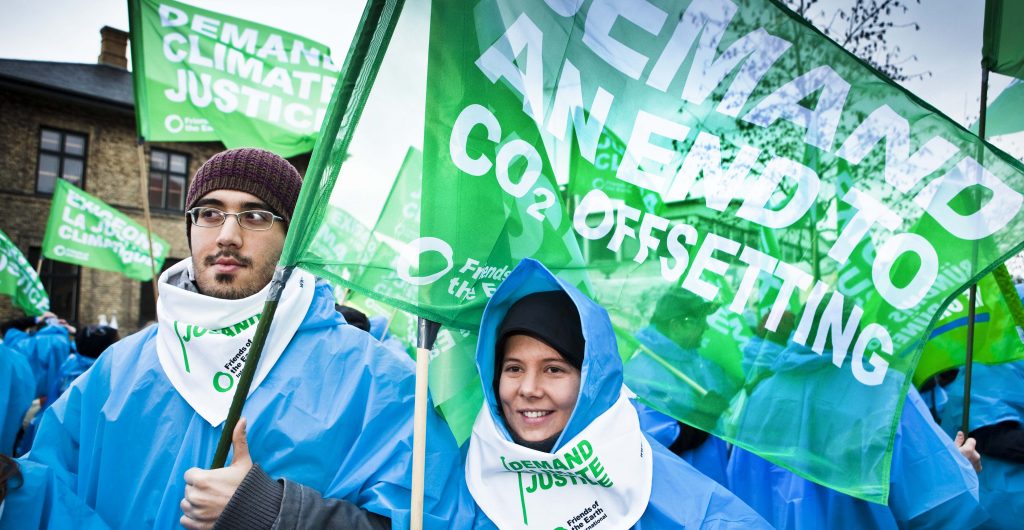Brussels/Copenhagen, December 11 – The chances of reaching a just and fair international agreement on combating climate change are extremely slim today after European Heads of State failed to significantly strengthen the EU’s position for Copenhagen.
At a meeting in Brussels, EU leaders agreed not to increase the 20% emission reduction target by 2020, compared to 1990 levels, which they set in 2007. They kept their conditional offer of a 30% target for 2020 subject to other parties’ commitments.
Both targets would be achieved with a huge element of offsetting which is an excuse for developed countries not to reduce emissions at the scale and speed science says is needed to avoid the worst impacts of climate change.
To stand a reasonable chance of staying below the crucial two degrees Celsius global warming threshold, Europe and other developed countries which are historically responsible for causing climate change must cut their emissions by at least 40% by 2020 without offsetting.
Sonja Meister, climate campaign coordinator for Friends of the Earth Europe, said: “This meeting of European leaders has not given any reason to be more hopeful that a just and effective climate agreement will be achieved in Copenhagen. The EU’s decision not to commit for certain to more than 20% emissions cuts by 2020 is insufficient and unjust. EU leaders come to Copenhagen next week and now there is even more pressure than ever for them to commit to 40% domestic emissions cuts in line with what science and climate justice demand.”
EU leaders also failed to state what the EU is willing to pay to enable developing countries to tackle climate change in the long-term. They merely offered a token 2.4 billion Euros of largely repackaged development aid money annually until 2013. Much larger amounts of new and additional public finance are required until 2020 to support developing countries to mitigate their emissions and adapt to the effects of climate change.
“Providing fast track money cannot excuse the EU from its real long-term commitments. That the EU is largely using money which otherwise would have been used to build schools or deliver health care in the developing world is shameful and will not be welcomed by developing countries in Copenhagen,” Sonja Meister said.
A study produced by Stockholm Environment Institute in partnership with Friends of the Earth Europe shows that at least 40% emission cuts within Europe by 2020 are feasible and affordable [1].
The research, ‘Europe’s Share of the Climate Challenge: Domestic Actions and International Obligations to Protect the Planet’ [1] describes a comprehensive pathway for Europe to cut domestic emissions by at least 40% in 2020, and by 90% in 2050, compared to 1990 levels without resorting to dangerous or unproven solutions. The scenario rules out nuclear power, agrofuels and carbon capture and storage.
The research shows that the cuts can be achieved through a combination of radical improvements in energy efficiency, the accelerated phase-out of fossil fuels, a dramatic shift towards renewable energies, and lifestyle changes.
NOTES
A new study published by Friends of the Earth Europe and Stockholm Environment Institute on December 1 proves for the first time that Europe could achieve at least 40% domestic emissions reductions by 2020 without resorting to false solutions like agrofuels, nuclear or carbon capture and storage.
The full report ‘Europe’s Share of the Climate Challenge: Domestic Actions and International Obligations to Protect the Planet’ is available at: www.foeeurope.org and www.sei-international.org/climateshareeurope






